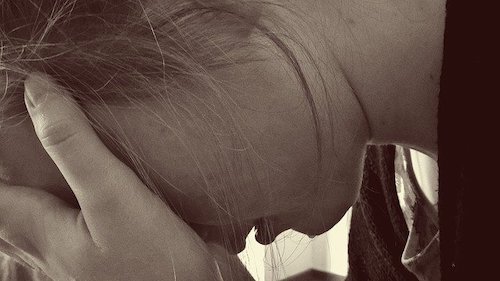Can We Ever Heal From Childhood Abuse?
By Dr. Margaret PaulNovember 09, 2020
Will you always be struggling with the effects of an abusive childhood?
 If you had an abusive childhood, will you always suffer from it? This is the question that Andrea asked me about:
If you had an abusive childhood, will you always suffer from it? This is the question that Andrea asked me about:
"I had a terrifying childhood. I have had counseling, motion light therapy, and been hypnotized, and they have done wonders for me, yet I still long for completion in my mind over these things. My question is - is there ever an end to your struggle in dealing with such things?"
The answer is Yes, You Can Heal, But There are Challenges…
Major healing occurs when you practice Inner Bonding and learn to give yourself the love you didn't receive as a child. You need to learn to be the loving inner parent that your inner child needs. This is what will create the inner safety and self-worth that are necessary for healing.
However, a terrifying childhood leaves wounds and scars, and those wounds and scars can show up in numerous ways.
One of the main ways that I've seen over and over is that, due to ongoing and intense stress from dealing with various forms of abuse, the immune system often gets compromised. Being subjected to a terrifying childhood can, sadly, lead to various illnesses. Much supportive work, including making sure that your gut is healthy and balanced, will need to be done to build up the immune system.
PTSD
Terror causes Post Traumatic Stress Disorder (PTSD), and can result in being angry or feeling frozen. When you cannot fight or flee, as you couldn’t during childhood abuse, the body often goes into a frozen state. Here is where therapies such as EFT (Emotional Freedom Technique), TRE (Trauma Release Exercises), EMDR (Eye Movement Desensitization and Reprocessing), and SE (Somatic Experiencing) can be extremely helpful.
There are often raw places inside that may frequently get triggered; the good news is that these raw places can be addressed with Inner Bonding and the above therapies.
I have personally used EFT with much success, but the thing that has healed my own raw places the most is learning to show up as a deeply compassionate loving adult. For me, learning to lovingly and compassionately embrace my core painful feelings of loneliness, heartbreak and helplessness over others – each time they arise – has been deeply healing. This is what has enabled me to regulate my feelings so that I don't so easily get triggered into the protections of my wounded self.
Spiritual Connection
Spiritual connection is perhaps the most important aspect of healing. The more you learn to stay connected with your guidance throughout the day, the safer and more loved you will feel on the inner level. This occurs through a devoted Inner Bonding practice.
I encouraged Andrea to let go of the concept of struggle and replace it with learning and healing. To me, struggle has a negative connotation, while the idea of learning and healing throughout my life feels like an exciting journey. Also, it might be useful for Andrea to gently let go of the notion of completion. Even with profound healing, there is always more to learn. I think life would feel very dull if this were not so.
Shift Out of Struggle and Into Learning
Instead of looking at your healing process as a struggle, with a completion point, why not look at it as a sacred journey of evolving your soul in your ability to love and to fully manifest yourself?
It is my experience that when someone has had a terrifying childhood, they often develop much more depth, strength, and resilience than people who had it easy. You need those qualities to survive. The fact that Andrea survived her abusive childhood with her sanity intact indicates that she found the strength within to deal with it. Instead of seeing this as a liability, I suggest honoring it. It’s my experience that only very old souls present themselves with an extremely difficult childhood, in order to challenge themselves in maintaining their ability to love. The fact that Andrea chose to heal herself rather than being like her parents says much about who she is in her soul.
When she fully values this about herself, she will have done much inner work in defining the beauty of her soul. Defining who we are in our soul is a major aspect of healing, and we need our spiritual connection to see who we are through the eyes of love.
Deep healing occurs as we develop our spiritually connected loving adult, define the beauty of our soul, and learn to take loving action on our own behalf.
Join Dr. Margaret Paul for her 30-Day at-home Course: "Love Yourself: An Inner Bonding Experience to Heal Anxiety, Depression, Shame, Addictions and Relationships."
Join IBVillage to connect with others and receive compassionate help and support for learning to love yourself.
 Send this article to a friend
Send this article to a friend  Print this article
Print this article  Bookmarked 0 time(s)
Bookmarked 0 time(s)
| Related Articles |
|---|
| Healing From Childhood Abuse |
Comments
| Author | Comment | Date |
|---|---|---|
| Join the Inner Bonding Community to add your comment to articles and see the comments of others... | ||

Daily Inspiration
Notice throughout this day what gives you energy and what drains your energy. Which people are givers and which are takers? Which experiences energize and which are depleting? What thoughts fill you and what thoughts create emptiness? Become conscious of what gives to you and what takes from you.
By Dr. Margaret Paul

 Share with Del.icio.us
Share with Del.icio.us Share with Digg
Share with Digg







